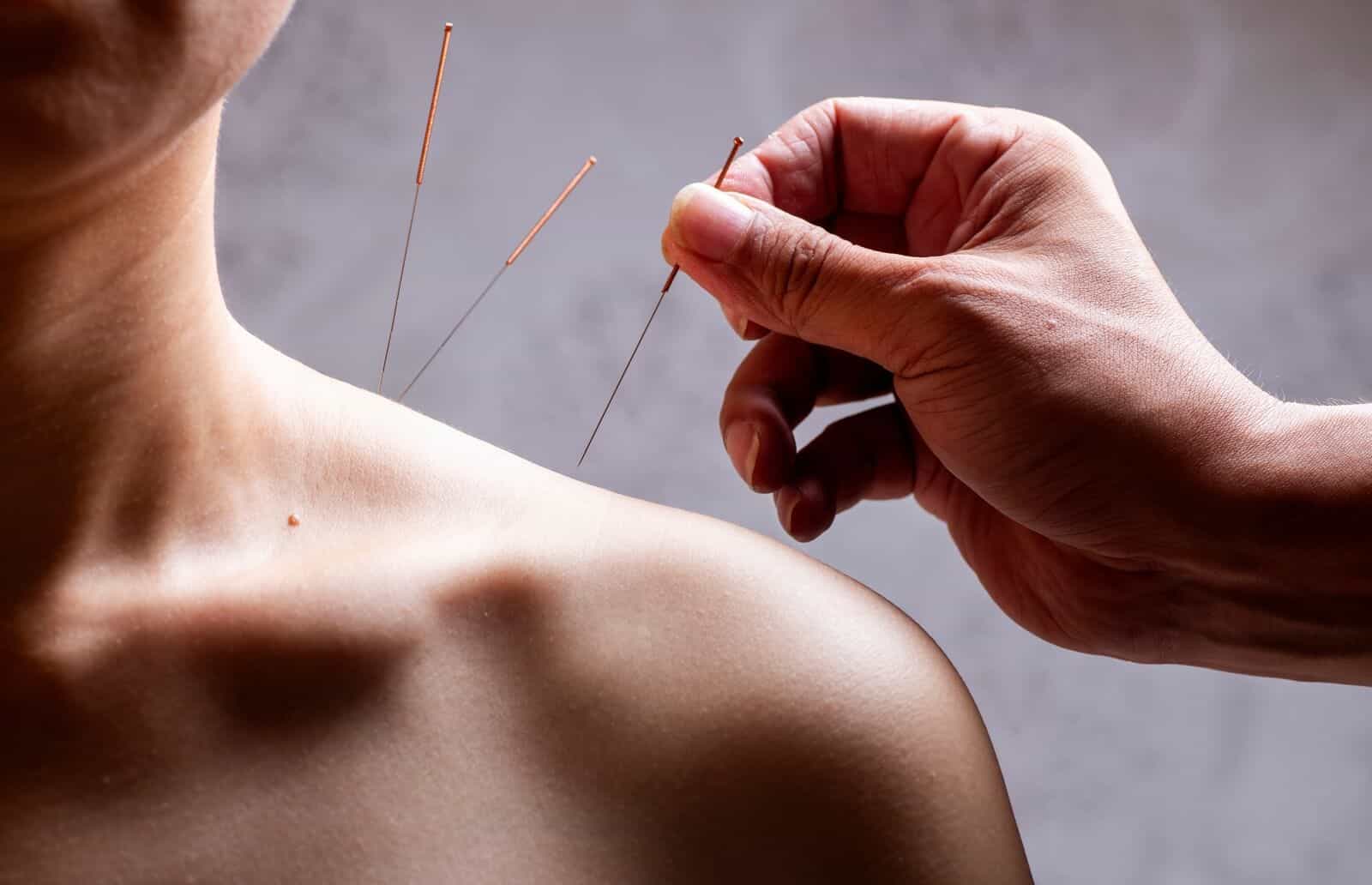Acupuncture therapy is an ancient healing practice that has been used for thousands of years to prevent, diagnose, and treat various conditions. Today, it is widely recognized as an effective complementary treatment for pain relief, stress reduction, and overall wellness.
Despite its growing acceptance, many people still have questions and concerns before trying this therapy for the first time. Does acupuncture hurt? How long does a session last? What should you wear?
If you're considering this therapy method but aren’t sure what to expect, this guide will answer nine of the most common questions about acupuncture.
1. Does Acupuncture Hurt?
A common concern for first-time patients is whether acupuncture is painful. The good news? Most people feel little to no pain. Acupuncture needles are extremely thin, much finer than those used for injections, so their insertion rarely causes discomfort.
Some describe a mild tingling, warmth, or slight pressure when the needles are placed, but any sensation is typically brief and fades quickly. Many people find this practice soothing and relaxing; some even fall asleep during treatment.
If you’re sensitive to pain or nervous about needles, let your practitioner know. They can use gentler techniques or finer needles to ensure your experience is as comfortable as possible.
2. What Does Acupuncture Do?
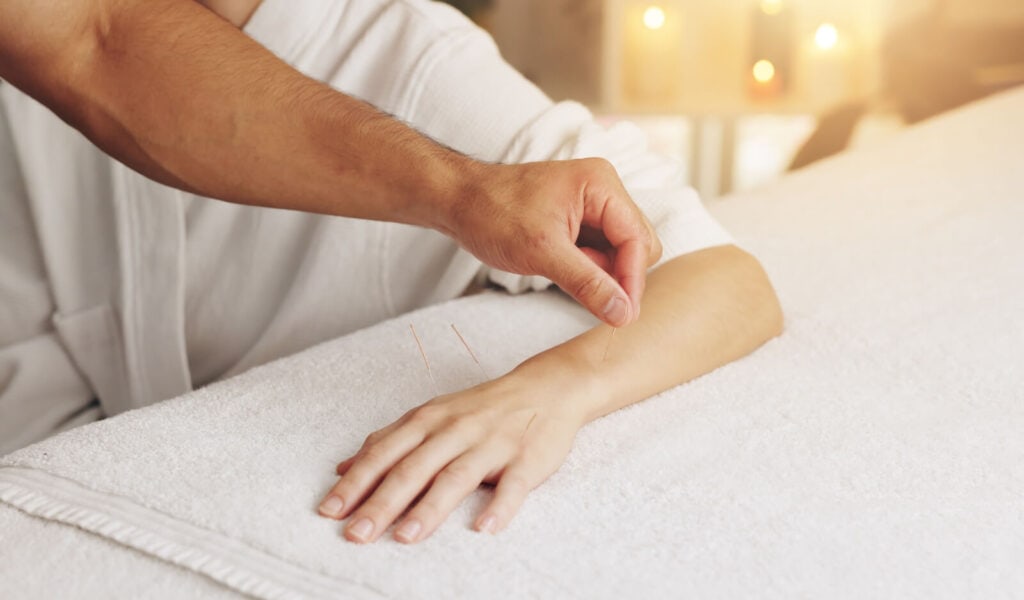
Acupuncture stimulates specific points on the body to promote natural healing. According to Hopkins Medicine, acupuncture is a part of Traditional Chinese Medicine (TCM). It is believed to balance the body’s energy flow, known as qi (pronounced “chi”), ensuring it moves freely through meridian pathways.
From a modern medical perspective, this treatment option activates the nervous system, releasing endorphins and improving blood circulation. It can also reduce inflammation, relax muscles, and regulate hormone levels.
Many people seek acupuncture needle therapy for conditions like chronic pain, migraines, digestive issues, and sleep disorders. Whether as a standalone therapy or a complement to conventional medicine, acupuncture provides a holistic approach to healing.
3. How Long Does Acupuncture Take?
The length of an acupuncture session depends on the condition being treated and the practitioner's approach. On average, a session lasts 20 to 60 minutes, with first-time visits often taking longer due to the initial consultation.
During your first session, your acupuncturist will review your health history, discuss symptoms, and develop a personalized treatment plan. After this, fine needles are inserted into specific points and left in place for 15-30 minutes while you relax.
Follow-up sessions typically last 30-45 minutes with most of the time spent resting with the needles in place. Some people feel immediate effects, while others experience gradual improvements over multiple treatments.
4. What Should I Wear to an Acupuncture Appointment?
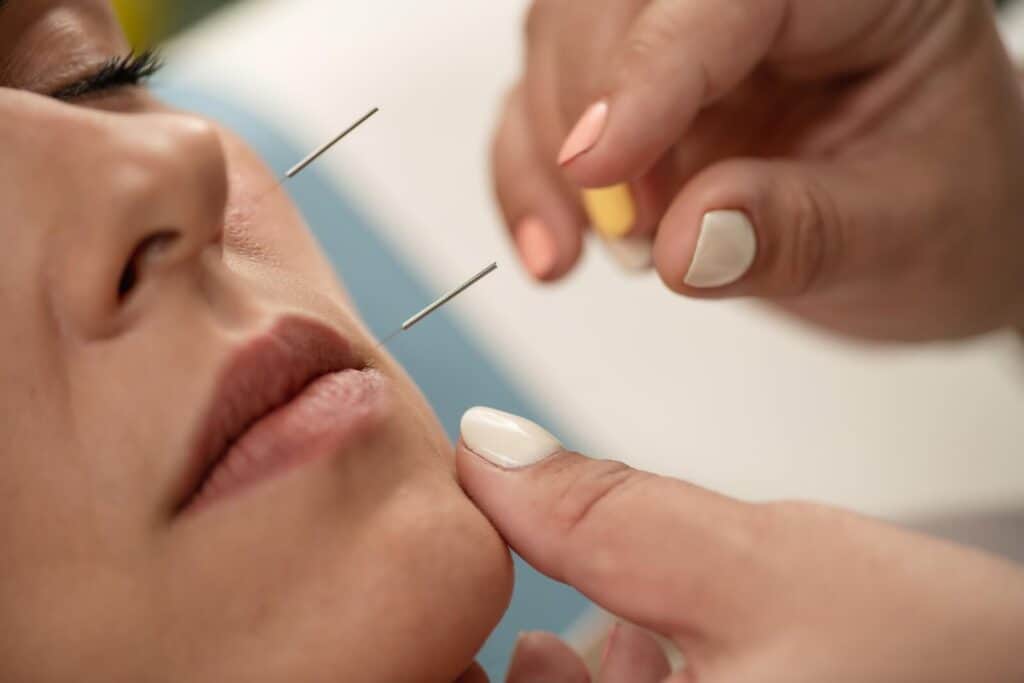
If you are unsure what to wear to acupuncture, loose, comfortable clothing is best. Many acupuncture points are located on the arms, legs, back, and abdomen, so wearing a short-sleeved shirt and shorts makes access easier.
If needed, your practitioner may provide a gown or blanket to ensure comfort and privacy during treatment.
It’s also a good idea to avoid wearing heavy perfumes or lotions, as some acupuncture clinics incorporate aromatherapy or massage techniques as part of the session.
5. Are There Any Side Effects or Risks?
Acupuncture therapy is generally very safe when performed by a licensed professional. The most common side effects are mild and temporary, including slight bruising, minor soreness, or fatigue after a session. Some people feel a brief lightheaded sensation immediately afterward, but this typically fades within minutes.
To ensure safety, it’s essential to see a licensed practitioner who uses sterile, single-use needles to prevent infection. If you have a bleeding disorder or take blood thinners, inform your acupuncturist before treatment so they can adjust their technique if necessary.
Most patients experience no significant side effects, and many leave their sessions feeling relaxed, refreshed, and with improved well-being. However, if you are pregnant, it’s important to discuss acupuncture with your healthcare provider, as certain acupuncture points should be avoided during pregnancy.
6. How Many Sessions Will I Need?
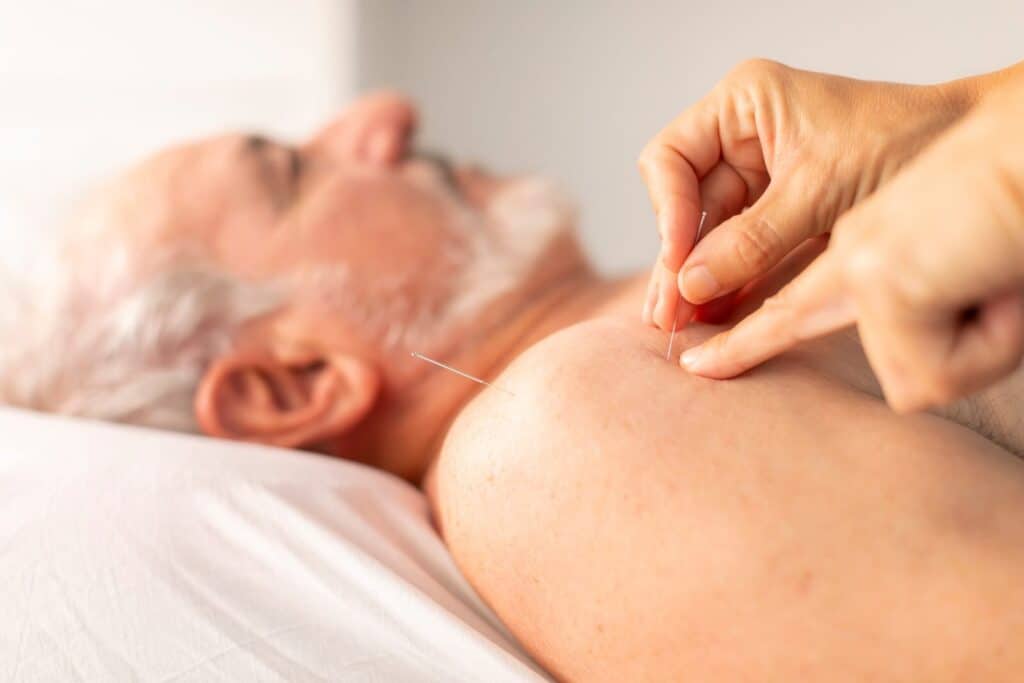
The number of acupuncture sessions varies based on the condition being treated, its severity, and how your body responds to the treatment. Some people feel noticeable relief after just one session, while others require multiple visits over weeks or months to achieve lasting results.
For acute conditions like a recent muscle strain, 1-3 sessions may be enough. Chronic conditions such as arthritis, migraines, or anxiety typically require weekly treatments at first, followed by maintenance sessions once symptoms improve.
Your acupuncturist will create a personalized treatment plan based on your specific needs. Open communication with your practitioner ensures that your progress is monitored and adjustments are made as necessary for optimal results.
7. Can Acupuncture Help with Anxiety, Stress, and Migraines?
Acupuncture is widely used to promote relaxation, reduce stress levels, and alleviate migraines and tension headaches. By stimulating specific points on the body, this therapy helps regulate the nervous system, lower cortisol (the stress hormone), and increase serotonin and dopamine, which play key roles in mood regulation.
Acupuncture has been effective in treating generalized anxiety disorder. Many patients report a deep sense of relaxation after a session, along with improved sleep quality, tension relief, and emotional balance over time. Additionally, acupuncture may work for migraines.
Because acupuncture addresses both physical and emotional symptoms of stress, it’s often used alongside therapy, meditation, and lifestyle changes to create a holistic approach to mental well-being.
8. Is Acupuncture Covered by Insurance?

Acupuncture coverage varies by insurance provider and plan. Some policies cover acupuncture for pain management, chronic conditions, or post-surgical recovery, while others may exclude it entirely. Many insurers now recognize the practice as an effective complementary treatment, especially for conditions like arthritis and stress relief.
To check your coverage, contact your insurance provider and ask whether acupuncture is included in your plan. Some policies require a doctor’s referral before covering treatment, while others may limit coverage to specific conditions or a set number of sessions per year. Many clinics offer affordable self-pay options or package discounts for ongoing treatment if acupuncture isn't covered.
9. What Should I Do After an Acupuncture Session?
To maximize the benefits of acupuncture, follow these post-treatment recommendations:
- Stay hydrated to help flush out toxins.
- Avoid intense physical activity for a few hours.
- Eat a nourishing meal to support your body’s healing.
- Take note of how you feel.
Mild soreness at needle sites is rare but normal. If needed, a warm compress or light stretching can provide relief.
Considering Acupuncture? Schedule a Session Today.
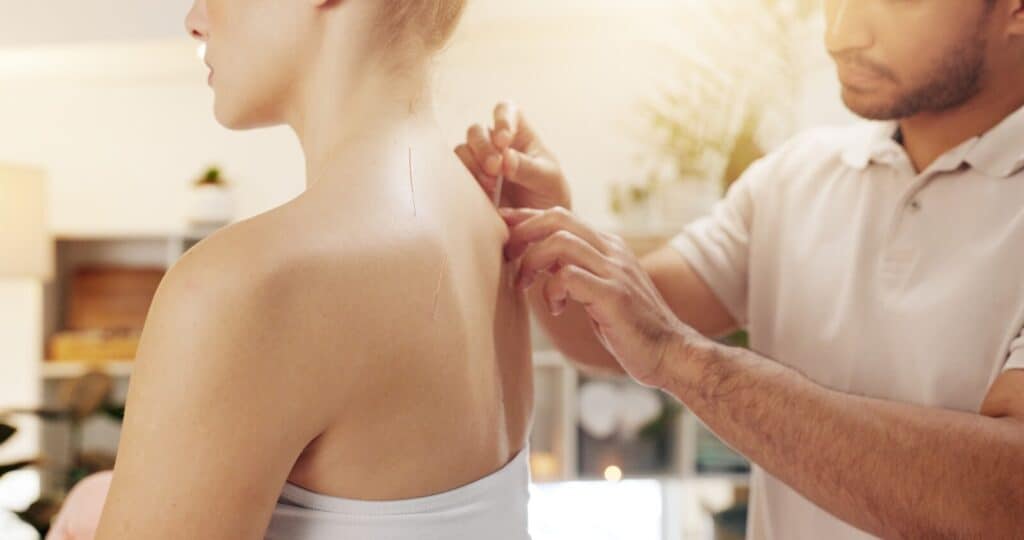
Acupuncture offers a natural, holistic approach to healing, helping with pain relief, stress reduction, and overall balance. Whether you’re curious about how this therapy can support your health or are ready to start treatment, working with a licensed acupuncturist is the best way to receive safe, personalized care.
At Northeast Spine and Sports Medicine, our team is dedicated to providing high-quality acupuncture treatments across New Jersey. Schedule a consultation today by calling (848) 360-3537 or booking an appointment online.
